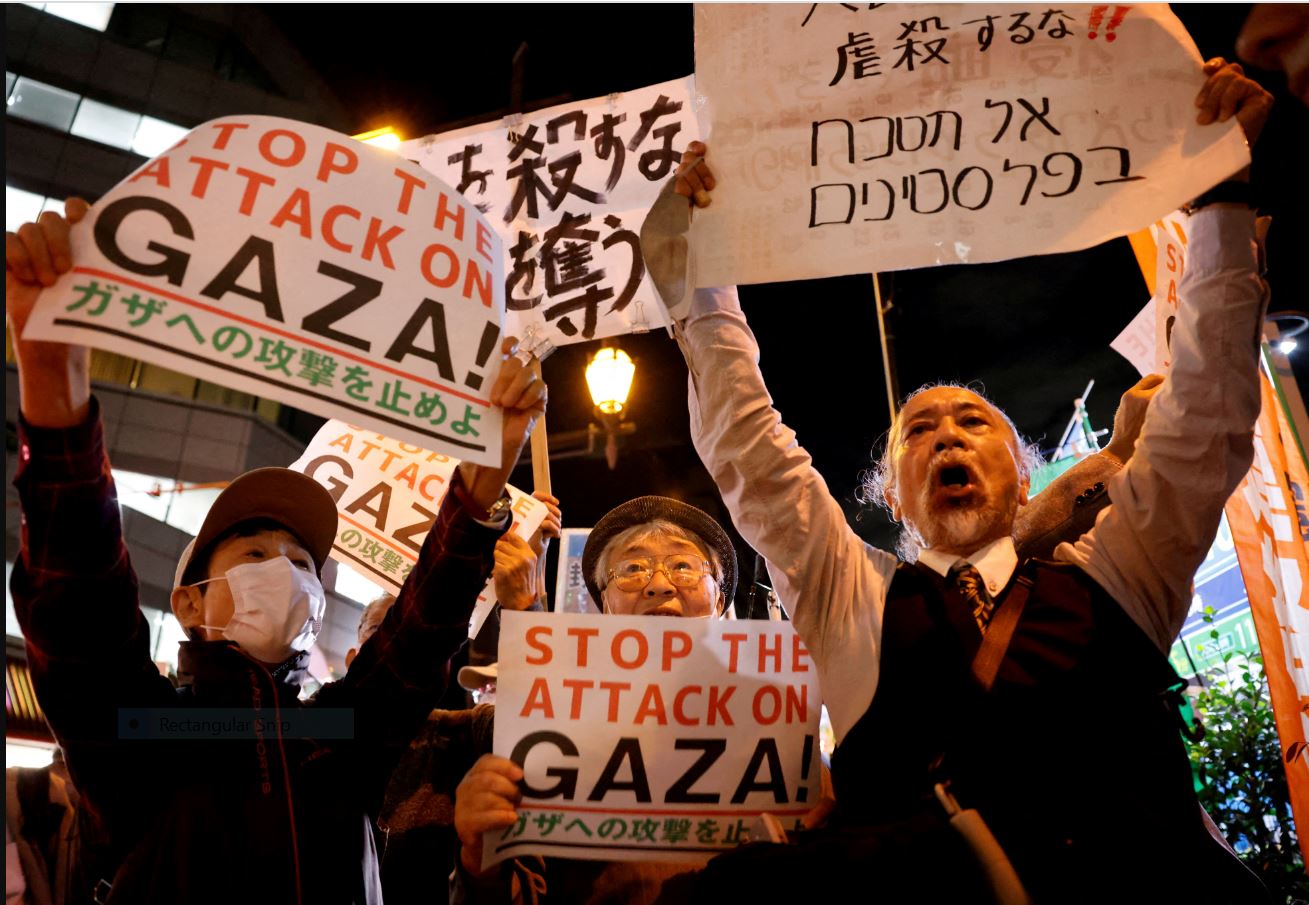Gunfire, protests as Sudan’s military seizes power in coup
Khartoum (Reuters) – Sudan’s military seized power in a coup on Monday, arresting members of a transitional government that was supposed to guide the country to democracy following the overthrow of long-ruling autocrat Omar al-Bashir in a popular uprising two years ago.
Gunfire was heard as opponents of the takeover took to the street and medics said people had been hurt in clashes.
General Abdel Fattah al-Burhan, who headed the Sovereign Council that had shared power between the military and civilians, said the council had been dissolved. He announced a state of emergency, saying the military needed to protect the country’s safety and security.
“We guarantee the armed forces’ commitment to completing the democratic transition until we hand over to a civilian elected government,” he said, setting elections for July 2023.
“What the country is going through now is a real threat and danger to the dreams of the youth and the hopes of the nation.”
Prime Minister Abdalla Hamdok was detained and taken to an undisclosed location after refusing to issue a statement in support of the takeover, said the information ministry, which was still apparently under the control of Hamdok’s supporters.
The ministry called Burhan’s announcement a military coup and urged resistance. It said tens of thousands of people opposed to the takeover had taken to the streets and had faced gunfire near the military headquarters in Khartoum.
At least 12 people were injured in clashes, a doctors’ committee said, without providing further details.
In Khartoum’s twin city Omdurman, protesters barricaded streets and chanted in support of civilian rule.
“We will defend democracy until the end,” said one protester, 21-year-old Iman Ahmed.
“Burhan cannot deceive us. This is a military coup,” said another young man who gave his name as Saleh.
‘Raise Our Voices‘
Joint forces from the military and from the paramilitary Rapid Support Forces were stationed in the streets of Khartoum.
The information ministry said troops had arrested civilian members of the Sovereign Council and government figures. It called on Sudanese to oppose the military attempt “to block the democratic transition”.
“We raise our voices loudly to reject this coup attempt,” it said in a statement.
Sudan has been ruled for most of its post-colonial history by military leaders who seized power in coups. It had become a pariah to the West on the U.S. terrorism blacklist under Bashir, who hosted Osama bin Laden in the 1990s and is wanted by the International Criminal Court in the Hague for war crimes.
The country had been on edge since last month when a failed coup plot, blamed on Bashir supporters, unleashed recriminations between the military and civilians in the transitional cabinet.
In recent weeks a coalition of rebel groups and political parties had aligned themselves with the military and called on it to dissolve the civilian government, while cabinet ministers took part in protests against the prospect of military rule.
Sudan has also been suffering a grave economic crisis. Civilian officials have claimed credit for some tentative signs of stabilisation after a sharp devaluation of the currency and the lifting of fuel subsidies.
Washington had tried to avert the collapse of the power-sharing agreement by sending a special envoy, Jeffrey Feltman. The director of Hamdok’s office, Adam Hereika, told Reuters the military had mounted the takeover despite “positive movements” towards an agreement after meetings with Feltman in recent days.
The military had been meant to pass on leadership of the Sovereign Council to a civilian figure in the coming months. But transitional authorities had struggled to move forward on issues including whether to hand Bashir over to the Hague.
Burhan said it was incumbent on the armed forces to act after infighting between some political forces and “the striving for power” and “incitement to chaos and violence”.
U.S. envoy Feltman said a military takeover would put U.S. aid at risk. The U.S. Embassy urged those disrupting the transition to democracy to stand down and let the civilian-led government continue its work.
The United Nations, Arab League and African Union all expressed concern. Sudan’s political leaders should be released and human rights respected, AU Commission Chair Moussa Faki Mahamat said in a statement.
Britain called the coup an unacceptable betrayal of the Sudanese people. France called for the immediate release of Hamdok and other civilian leaders. Egypt called on all parties to exercise self-restraint. Saudi Arabia said it was following developments with extreme concern.
The Sudanese Professionals Association, an activist coalition in the uprising against Bashir, called for a strike.
Burhan’s “reckless decisions will increase the ferocity of the street’s resistance and unity after all illusions of partnership are removed,” it said on its Facebook page.
The main opposition Forces of Freedom and Change alliance called for civil disobedience and protests across the country.
Military forces stormed Sudanese Radio and Television headquarters in Omdurman and arrested employees, the information ministry said on its Facebook page. Two major political parties, the Umma and the Sudanese Congress, condemned what they called a coup and campaign of arrests.
Hamdok, an economist and former senior U.N. official, was appointed as a technocratic prime minister in 2019 but struggled to sustain the transition amid splits between the military and civilians and the pressures of the economic crisis.
Family sources told Reuters military forces had also stormed the house of Hamdok’s media adviser, a senior civilian figure and former minister, and arrested him.



